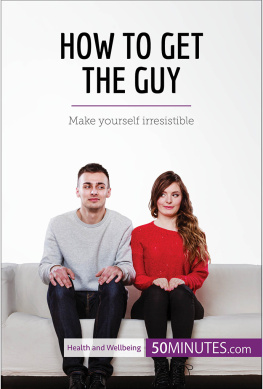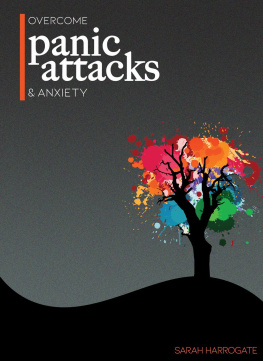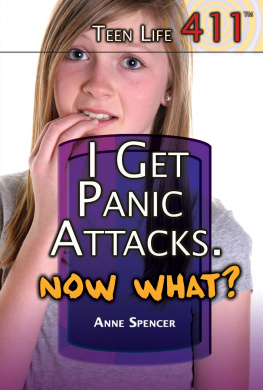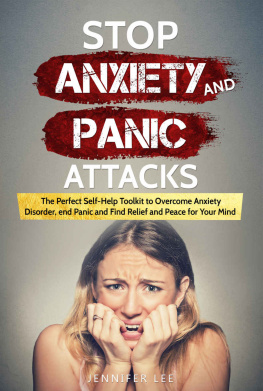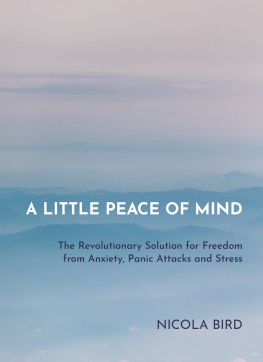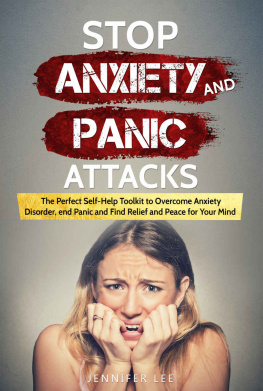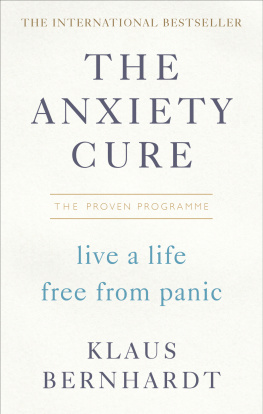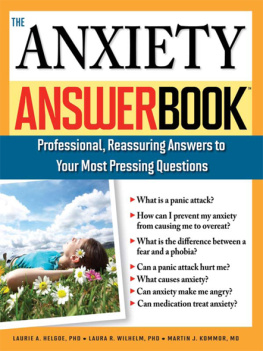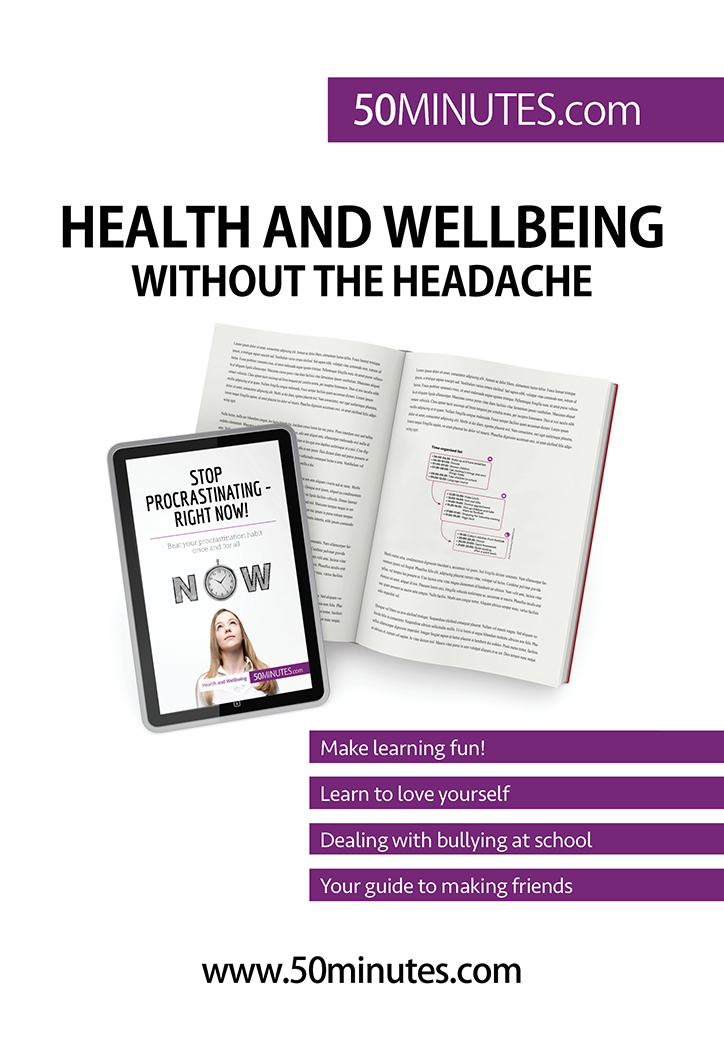Anxiety should not be confused with stress, which usually stems from a specific source (an upcoming exam, a job interview, etc.), or temporary worries such as a minor illness. On the contrary, anxiety is a persistent, intense feeling of unease which may even feel like a physical weight lodged in your stomach or chest, and in extreme cases can cause anxiety attacks or panic attacks. It is generally defined as a generalised, irrational sense of fear. Anxiety attacks are a serious psychological ailment and can be treated in a number of different ways, depending on the individual in question and the severity of their condition.
People who suffer from anxiety experience irrational fear in the form of a general sense of unease. This condition affects between 4 and 7% of the population, but it is particularly difficult to diagnose due to the wide range of symptoms associated with it. In addition, certain symptoms of anxiety, such as stomach pains, breathing difficulties and attacks of tachycardia, can easily be mistaken for signs of a physical ailment. For this reason, in some cases it can take months or even years after the first symptoms appear for anxiety to be diagnosed correctly.
Anxiety attacks can prove life-ruining, as those who suffer from them often live in a permanent state of fear, constantly dreading the onset of another attack. Indeed, they often begin avoiding situations that could trigger an anxiety attack, and get trapped in a vicious circle wherein their attempts to avoid inducing a panic attack lead them to isolate themselves socially, which often causes them to fall into depression.
WHAT IS ANXIETY?
THE SYMPTOMS OF AN ANXIETY ATTACK
The first step in treating anxiety is to become aware of it, recognise the warning signs and identify the symptoms. It is also crucial to differentiate between stress, which is temporary, and anxiety, which is more permanent. While stress is generally caused by exceptional circumstances, anxiety is triggered by situations that we deal with on a regular basis. For this reason, it is important to be aware of the risk factors and situations which contribute to anxiety.
There are many different symptoms of anxiety, including heart palpitations, an accelerated heart rate, chest pains, breathing difficulties, hyperventilation, neck pains, headaches, dizziness, fainting spells, muscle tension, insomnia, restless sleep, nightmares, exhaustion, a dry mouth, the feeling of a heavy weight in your stomach or a lump in your throat, indigestion and reduced libido.
During an anxiety attack, it is also common to experience a sudden fear of one or more of the following circumstances: dying, impending doom, losing control of yourself, fainting, going mad and tragedy befalling close friends or family.
THE CAUSES OF ANXIETY
Anxiety can be caused by a number of different triggers, meaning that it can be difficult to identify the exact cause of a specific persons anxiety (especially as it may stem from more than one of these causes): a traumatic event (death, an accident, etc.), a genetic issue such as imbalanced neurotransmitters, depression, phobias, constant exposure to a stressful environment or being surrounded by other people who also suffer from anxiety. The catalysts for an anxiety attack can be biological, psychological, genetic or medical in nature, or it may stem from a kind of neurosis (internal conflict caused by forbidden desires or rejection).
Furthermore, the consumption of certain chemical substances (sodium lactate, nitrogen dioxide, etc.), stimulants (taurine, caffeine, etc.) or psychotropic drugs (cannabis, cocaine, etc.) can also contribute to the onset of an anxiety attack.
THE ROLE OF NEGATIVE THOUGHTS
Our brains can often fixate on negative thoughts for hours at a time, and this is undoubtedly another contributing factor to the development of anxiety. These thoughts are often intrusive and obsessive in nature, and have a symbiotic relationship with anxiety: high levels of anxiety make us more susceptible to negative thoughts, which in turn amplify our anxiety. It is therefore essential to break out of this vicious circle.
However, this can often be a difficult task, as anxiety tends to distort our perception of reality, and many sufferers negative thoughts become uncontrollable as a result.
BASIC STEPS TO TAKE DURING AN ANXIETY ATTACK
If you feel an anxiety attack coming on, the first thing you should do is focus on your breathing. If the panic you are feeling is so severe that you cannot perform a breathing exercise, simply focus all your attention on each inhalation and exhalation. After focusing on your breathing in this way for several minutes, your body and mind should already feel calmer.
Next, it is important to avoid falling into a spiral of negative thoughts. If you have already suffered anxiety attacks on previous occasions, you will know that you are not going to die and that the attack will pass. Actively remind yourself that the attack will soon be over and that it is only anxiety. Try to focus on positive thoughts and reassure yourself that you are safe.
Become aware of your anxiety
It is essential to become aware of your anxiety, learn to recognise the signs of an impending anxiety attack (breathing difficulties, accelerated heart rate, hot flushes, cold sweats, stomach pains, chest pains, etc.), identify situations which tend to exacerbate your anxiety (phobias, fears linked to a traumatic memory, exhaustion, etc.) and pay close attention to your symptoms.
Identify the triggers
If your anxiety is so severe that it is causing frequent anxiety attacks, it is worth engaging in a period of self-examination in order to identify the factors that trigger these anxiety attacks and the root causes of your anxiety.
Talking to your close friends and family during this process can often provide you with invaluable insight, as they may be able to identify times when you are feeling anxious without even being aware of it. This will help you to put your finger on the common factors in the different situations that exacerbate your anxiety and identify its underlying causes.
PROFESSIONAL THERAPY
If you suffer from deep-rooted anxiety which stems from a traumatic experience, or if your anxiety is becoming unmanageable, there are many different types of therapy available which can help you combat both your anxiety and the underlying fears that fuel it.
In addition to classic psychoanalysis, you can also try alternative treatments such as cognitive behavioural therapy or short-term therapy such as Emotional Freedom Techniques (EFT) or Eye Movement Desensitisation and Reprocessing (EMDR). In any case, the most important thing is to find an approach that suits your individual needs.
One option is cognitive behavioural therapy, which can be an extremely effective short-term treatment for anxiety. The first step in this process involves observing and analysing the symptoms that the patient is suffering from, which then enables the psychotherapist to determine the negative thought patterns that are causing their anxiety. The next step is to start implementing various behavioural techniques which are chosen according to the type and severity of the patients symptoms. The psychotherapist then helps the patient to gradually start facing the situations that scare them or trigger their anxiety attacks. If the therapy is successful, their symptoms will slowly diminish in severity and will eventually disappear completely.




